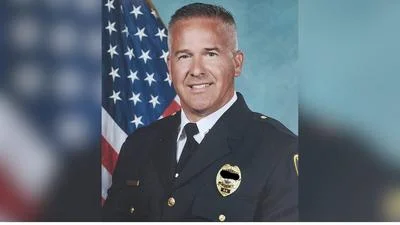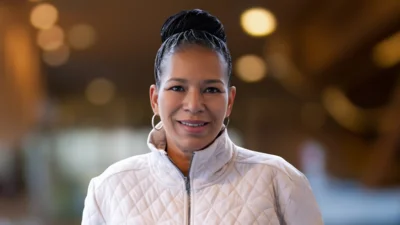City of Naperville City Council met Oct. 24.
Here are the minutes provided by the council:
A. CALL TO ORDER:
Chirico called the meeting to order at 7:03 p.m.
Present: 9 -
Mayor Steve Chirico
Councilwoman Jennifer Bruzan Taylor
Councilwoman Patty Gustin
Councilman Paul Hinterlong
Councilman Ian Holzhauer
Councilman Patrick Kelly
Councilman Paul Leong
Councilwoman Theresa Sullivan
Councilman Benjamin White
Also Present
City Manager, Doug Krieger; Deputy City Manager, Marcie Schatz; City Attorney, Mike DiSanto; Director of Community Services/City Clerk, Pam Gallahue; Fire Chief, Mark Puknaitis; Police Chief, Jason Arres; Director of Finance, Rachel Mayer; Director of Human Resources, James Sheehan; Director of IT, Jacqueline Nguyen; Director of TED, Bill Novack; Director of Public Utilities - Electric, Brian Groth; Director of Public Utilities - Water, Darrell Blenniss, Jr.; Director of Public Works, Dick Dublinski, Director of Communications, Linda LaCloche; Budget Manager, Ray Munch
Daily Herald, Naperville Sun, NCTV-17
B. INTRODUCTION:
C. PUBLIC FORUM:
D. PRESENTATION:
1. 2023 Annual Operating Budget and Capital Improvement Program Workshop #1
Chirico passed the floor to City Manager Doug Krieger to begin the budget presentation. Krieger began by acknowledging staff for the work done in preparing the budget and thanked Council for continued guidance. He then provided an overview of the budget discussion, including the City’s focus on Priorities, Performance, and Progress; what will be covered in each workshop, and how the budget is divided in the slated presentations. Following the overview, Krieger passed the presentation to City Finance Director Rachel Mayer.
Mayer highlighted the proposed 2023 budget which totals $603.32 million, an 11.6% increase from the 2022 budget. She indicated that operating expenses are only increasing 5.6% as the remainder is tied to increases in the capital improvement items, increased investment in the City’s infrastructure, and the impact of inflation on operating items. Mayer impressed upon the fact that even though the budget is increasing, there are no requests for new taxes or fees proposed to support the requests as projections are aligned with available resources.
Moving to the summary of revenues and expenses, Mayer indicated that most increases in expenses are driven by capital improvement requests, purchased services, and transfers. Purchased services are increasing because of spending in the architectural and engineering space, transfers from the Water Utility to the Phosphorus Fund and noted that some capital items will be funded through debt issuances in accordance with the debt policy.
Councilwoman Sullivan requested clarification on how the city is paying for the increases without increasing taxes. Mayer responded indicating that staff has plans in place to accommodate the expenses from sources such as sales and local taxes which have seen increases in revenues within the past year. Councilwoman Sullivan also questioned if the amount of debt in consideration for issuance in 2023 is in line with previous years. Mayer responded that no debt was issued in 2022, and that 2023 debt issuance remains in line with typical issuances of about $10 million each year.
Councilwoman Sullivan requested if the ARPA funds, though not reflected in the presentation, are earmarked for anything. Mayer responded that there are currently no recommendations for that funding and would return to Council with a comprehensive discussion in 2023. Councilwoman Taylor asked if there is a point where the funds would need to be returned if not appropriated, to which Mayer responded yes, the funds will need to be obligated for use by the end of 2024 and spent by the end of 2026
Councilman Holzhauer questioned what is the current interest rate for Water Capital borrowing to which Mayer responded an estimated 2-4%. On the issue of the EAV and property taxes, Councilwoman Gustin asked if ARPA funds could be used to offer tax reduction/ relief on property taxes. Mayer indicated that those do not fall under the eligible use of ARPA funds. Returning to the presentation, Mayer continued to explain the fund balances denoting that all the funds are balanced. From the Water Utility Fund, more than $16 million was transferred to the Water Capital fund. The Self-Insurance fund transfer represents a one-time transfer from the General fund resulting from unrealized liabilities. Water Capital will be discussed in the second workshop on November 9th. Mayer moved on to point out that the Food & Beverage Fund is increasing as a direct result of the industry returning to pre-pandemic levels. Councilman Kelly requested the projected actuals for 2022.
Moving on to notable changes in the budget, Mayer highlighted the eight personnel requests that are part of the 2023 budget proposal, noting the process by which each position is evaluated. Next, she moved on to discussing the capital projects and increases in the Water and Electric capital accounts. Mayor Chirico questioned if the water rate study had taken into consideration a surcharge each year, to which Mayer responded yes, and that the rate study is set to be evaluated at the end of 2023.
Councilman Kelly asked staff to specify the nature of the discretionary areas in the Electric’s capital program and to detail if Federal funds will cover all the requests, and if not, where will the $9 million be sourced from. Mayer responded that the City is working with West Monroe Partners to identify projects that are best suited for those Grant funds. Councilman Kelly questioned what the matching requirements are, if applicable, that the City will be required to fund. Brian Groth, Electric Utility Director, responded that funding opportunities will not be released until late November 2022 and that the estimate is 25% City/75% Federal is possible. Mayor Chirico questioned if there will be a reduction in the $9 million if federal funding does not become available to which Groth responded, yes. Councilwoman Sullivan queried if West Monroe were sourcing other grants related to Sustainability, to which Groth responded that the grants being evaluated are not related to sustainability. Councilman White inquired whether the new CIP requests for both Water and Electric were funded by rates or taxes, to which Groth replied “rates”, except for the $9 million requests. Darrell Blenniss, Water Utilities Director, replied both rates and debt issuances for the Water capital.
Mayer continued the presentation with the Economic trends and how the budget is affected by factors including inflation, which was at the highest level in 40 years. She pointed out that the city has seen costs increases in various areas, with the greatest impacts in departments that utilize supplies, materials, and contracted services. Looking to technical changes in the budget, Mayor pointed out the items that accounted for more than one-quarter of the increases in the General Fund, mainly the additional self-insurance fund transfer, the elimination of the vacancy factor and the movement of the Body-worn camera costs into the General fund from the Capital Projects fund and finally, that the City will begin the use of phosphorus funds in 2023 to offset projects at the Springbrook plant.
Councilwoman Sullivan asked to clarify that the transfer is only for phosphorus items and for staff to indicate how the cost is being accounted for. Mayer turned to the conversation to Blenniss who responded that the projects in 2023 are necessary to meet phosphorus limits. Councilwoman Gustin requested that staff compare the vacancy factor against the proposed FTEs.
Moving to property taxes, Mayer noted that the EAV was higher than the estimated 2 percent and the rates will remain unchanged. This is the sixth year that the city will maintain a rate below 0.7, with the estimated rate being 0.6743.
Mayer turned the presentation back over to Krieger, to continue with the topic of Keeping Naperville safe.
Krieger highlighted the general revenue sources that fund Public Safety as well as revenues generated on a department level. Chirico asked for clarification on whether the fees generated by specific departments are used for their specific purposes or are counted in the General fund. Krieger clarified that revenues are attributed to the fund. Gustin requested a chart of residents versus non-residents who were transported/ treated by Naperville ambulance. Moving to the personnel requests, Chirico asked if the high-tech crimes sergeant will be sworn personnel or will be assigned to the Information technology team, Krieger replied it is a sworn position. Councilman Hinterlong asked to discuss the radio project. Krieger responded that the item is upcoming in the following slides. Gustin asked if there are currently any technology that will allow Officers to take notes without the use of paper. Jason Arres, Police Chief, responded that the use of transcription on the body-worn cameras can dictate both the conversation and the interaction. Councilmen Kelly and Hinterlong inquired of the Police & Fire Chiefs on whether adequate staffing is available to operate the drones. Both responded favorably. Councilman White questioned the issue of CRT-trained personnel. Krieger responded alluding to the FTE’s that were requested by Fire but not allocated in the budget pending the outcome of legislations. This item will be brought back to the Council.
The presentation continued to vehicles and public safety equipment. Councilwoman Sullivan asked if the $930K police replacements were net of trade-in -value. Mayer pointed out that staff has modified the practices around selling vehicles on the open market and will keep vehicles in pooled fleet pending the issues with supply chain and lead times.
The discussion moved to public safety technology on the CAD/RMS replacement and the radio network system. Following a series of discussions on its compatibility with other systems, costs, the deadline to implement, and funding sources available to support it, the presentation moved on to the topic of supporting effective government.
Marcie Schatz, Deputy City Manager opened the discussion with a focus on the requested Deputy City Attorney and Assistant to the City Manager positions. Councilman Kelly requested additional information identifying the need for the position.
Citywide initiatives, technology projects, and healthcare costs were also discussed with Council requesting additional information, programming, and professional development surrounding the budget request for the Diversity, Equity, and Inclusion (DEI) initiatives. Councilwoman Taylor requested more information on expenses related to DEI initiatives. The merit pool for non-union staff was also addressed. Councilman Hinterlong indicated he is not in favor of the requested 4% percent. Mayor Chirico recommended a 3%. Councilman Kelly requested staff return with comparable data from other communities. Krieger summarized the presentation and discussed the upcoming workshop meeting dates of November 9 and 21.
E. ADJOURNMENT:
Council adjourned the Annual Operating Budget and Capital Improvement Program Workshop #1 of October 24, 2022 at 9:35 p.m.
https://naperville.legistar.com/View.ashx?M=M&ID=1055801&GUID=1176A5EB-17BA-4DDE-8D31-43B064AC6095





 Alerts Sign-up
Alerts Sign-up